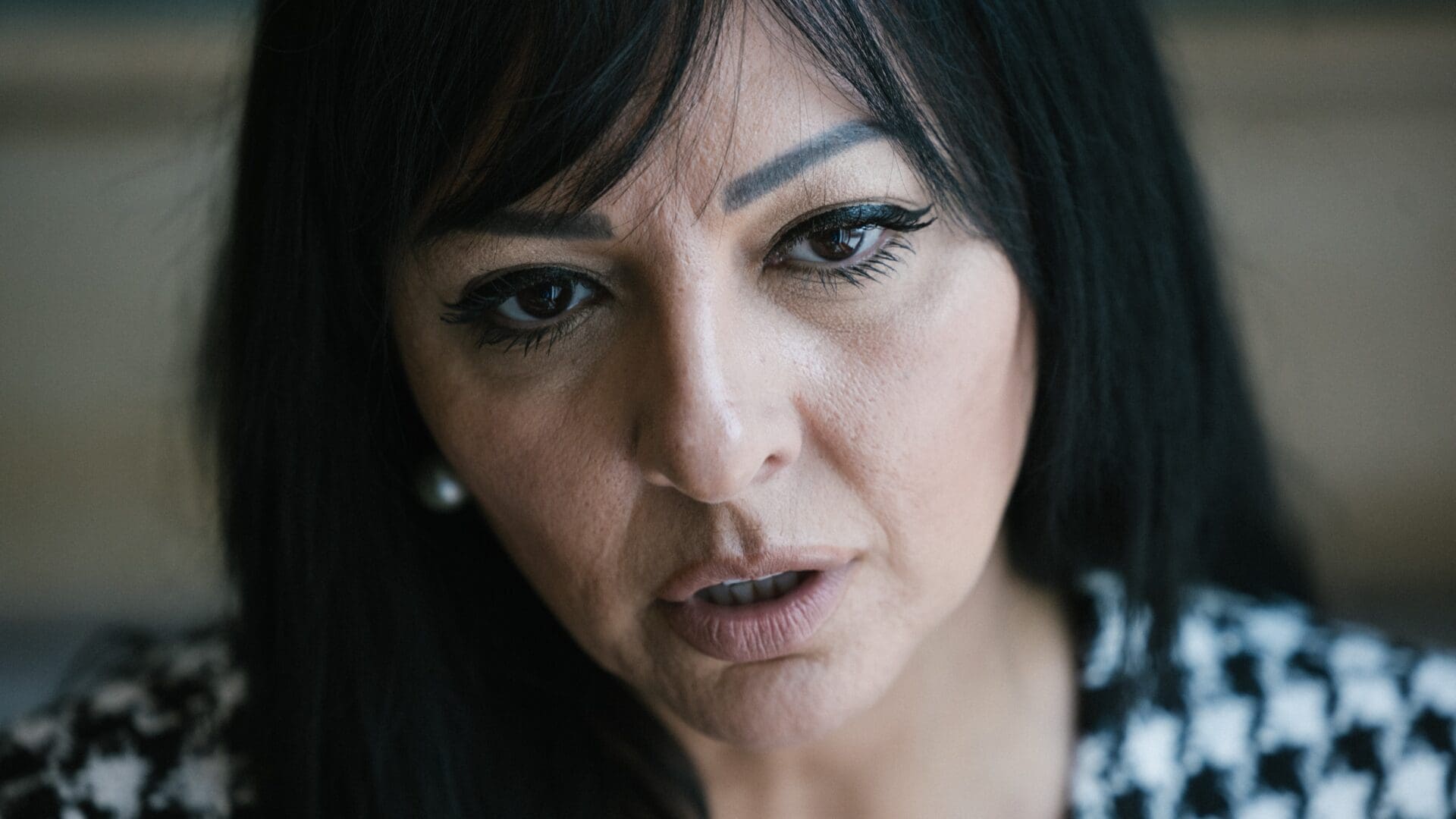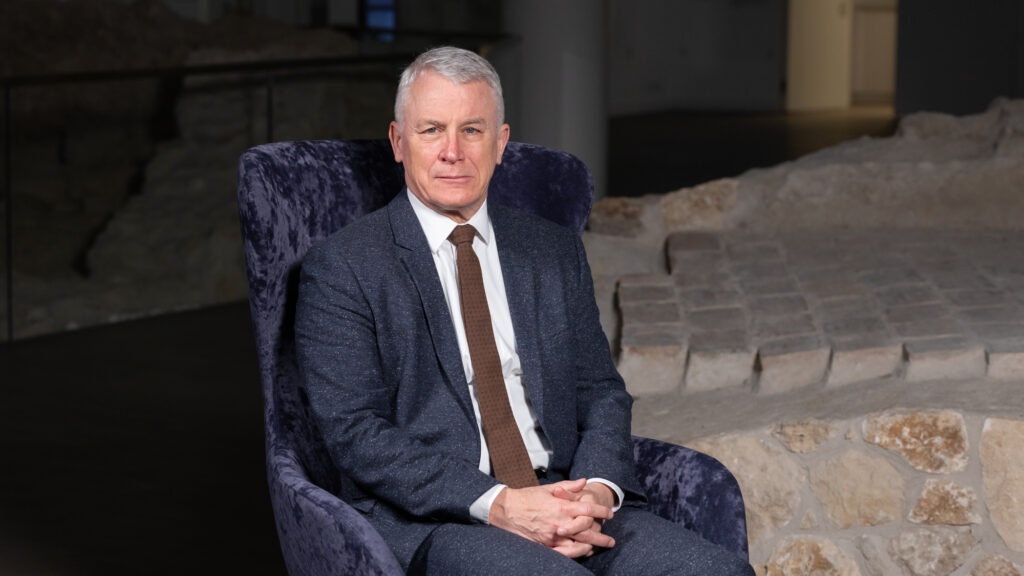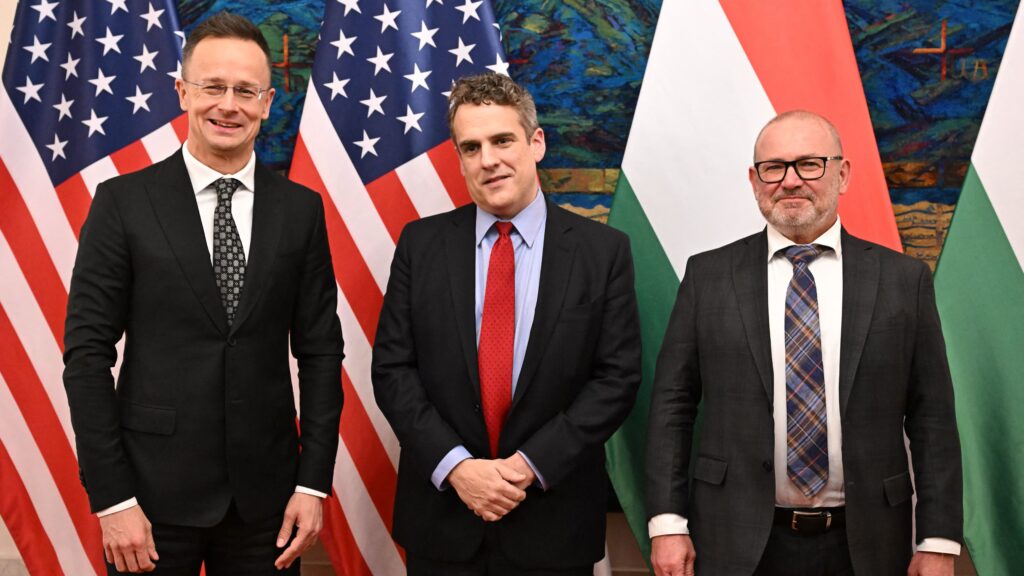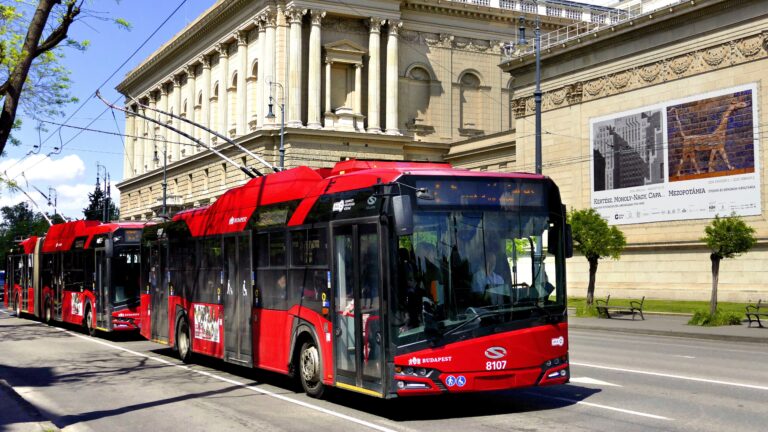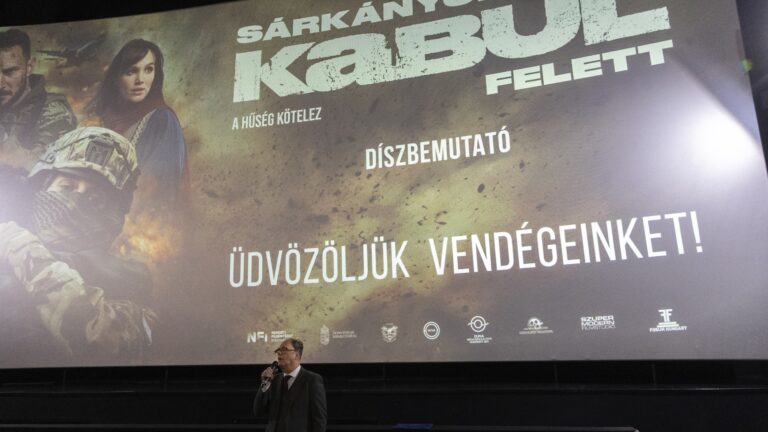In 2021, the Danube Institute launched a new podcast series titled ‘Reflections from Budapest’, in which we have had several thought-provoking discussions about religious conflict, religious violence and reconciliation. In our first episode in 2023, our guest was Juliana Taimoorazy, founder and president of the Iraqi Christian Relief Council, a leading international advocate and 2021 Nobel Peace Prize nominee, with whom we talked about the situation of Christian communities in Iraq.
Juliana Taimoorazy was born into an Assyrian Christian family in Tehran, Iran, in 1973. After the 1979 Islamic Revolution, she and her family faced harsh discrimination and violence because of their faith; in 1989, at the age of 16, she was smuggled out of the country. After she moved to the US, she made it her life’s mission to help Christians in need. In 2007, she founded the Iraqi Christian Relief Council to shed light on the plight of Christians in her ancestral homeland and to raise funds to deliver food, shelter and medicine to Iraq.
As an Assyrian Christian, Ms Taimoorazy highlighted that her ancestral homeland is Northern Iraq. She also underlined the saddening fact that the number of Iraqi Christians dropped significantly in the last 20 years from one and a half million in 2003 to 80 thousand today.
Christians Still Face Discrimination in Iraq
In our discussion, Ms Taimoorazy explained the challenges and forms of violence and discrimination Christians face in Iraq that make it immensely difficult for believers to remain in their homeland. She noted that the Assyrian Christian community has been marginalised for many decades. In 1914 under the Ottoman Empire, Assyrian Christians were persecuted and displaced from southeast Turkey; as a result, they had to flee to Northern Iraq, where the newly formed Iraqi government also harassed them. Under the presidency of Saddam Hussein, Christians were only tolerated in the country if they didn’t speak about their ethnicity and professed to be Arabs. Those Assyrian Christians who bravely endorsed their ethnicity and language were severely attacked.
Ms Taimoorazy also reminded that this year marks the 20th anniversary of the US invasion of Iraq,
which led to the destruction of the lives of one and a half million Assyrians, Chaldean and Syriac Christians.
In 2014, ISIS took control of Mosul and quickly learned where Christians lived (it was usually their very neighbours who gave them up) and ISIS militants marked their homes with the Arabic letter ‘nun’ (ن), which stands for Nazarenes, as Christians follow Jesus of Nazareth. In larger cities like Qaraqosh, those Christians who didn’t have time to escape were killed, women were raped, and believers were even crucified on their doorsteps. After ISIS destroyed the infrastructure of Qaraqosh and other cities, they gave Christians three options: convert to Islam; pay a tribute, a jizya, to ISIS; or leave their city with nothing more than the clothes on their back, or else they would be killed.
Ms Taimoorazy highlighted the personal status law as one of the country’s most significant forms of discrimination against Christians. The law makes the family, including children, officially Muslim if one of the parents chooses to convert to Islam, which means if someone with a Muslim parent wants to convert to Christianity, they cannot change their religion from ‘Muslim’ to ‘Christian’ on their ID cards. She also highlighted that there is a cultural clash in Iraqi Kurdistan between the Assyrian community and Kurdish Regional Government policymakers. Although the Kurdish government is secular and allows Christians to practice their religion, it also aims to change the history of the Assyrian heritage of Northern Iraq. For instance, they praise the Kurdish chieftain Simko Agha as a hero despite the fact he murdered East Syriac Patriarch Mar Shimun Binyamin XXI in 1918. Ms Taimoorazy added that demographic change is also a direct result of the persecution of the Christian community in Iraq. She highlighted that forcing Assyrian Christian minorities out of Iraq’s Nineveh Plains, the land of their ancestors, did not begin in 2014 when ISIS took over Mosul, but had been an ongoing process by Shabak Shia Muslims—backed by Iran—who are now moving more aggressively into Christian lands to confiscate them. Ms Taimoorazy also underlined that the Iranian infiltration of the Nineveh Plains resulted in Shiite Muslims now occupying the once Christian area, and influencing education there with schools like the Imam Khomeini School in the town of Bartella. Shiite militias also try to force Christian children to learn at the school named after the former Supreme Leader of Iran, Ayatollah Khomeini. One explanation for why Iran strengthened its influence in the Nineveh Plain might be that Iran uses it as a corridor to have easier access to Syria and Israel.
Hungary Helps, Too
In our conservation, Ms Taimoorazy also explained how the Iraqi Christian Relief Council helps Christians in need. The NGO was founded because, in 2007, Americans knew little or nothing about the sizable Christian community living in Iraq for 2000 years. The organisation’s main focuses are helping Iraqi Christians who chose to stay in Nineveh Plain, rebuild their infrastructure, and assist the 22,000 Iraqi Christian refugees in Lebanon, Turkey and Jordan. As the Iraqi Christian Relief Council is a smaller NGO, she added, they are always really thankful if they see other organisations helping Christians in Iraq. She expressed that they were really encouraged when the
Hungary Helps Agency provided 2 million euros in aid for the reconstruction of a Christian town in Iraq
that was destroyed in 2014, which in recognition of the gesture, was renamed Tel Askouf, meaning ‘Hungary’s daughter’.
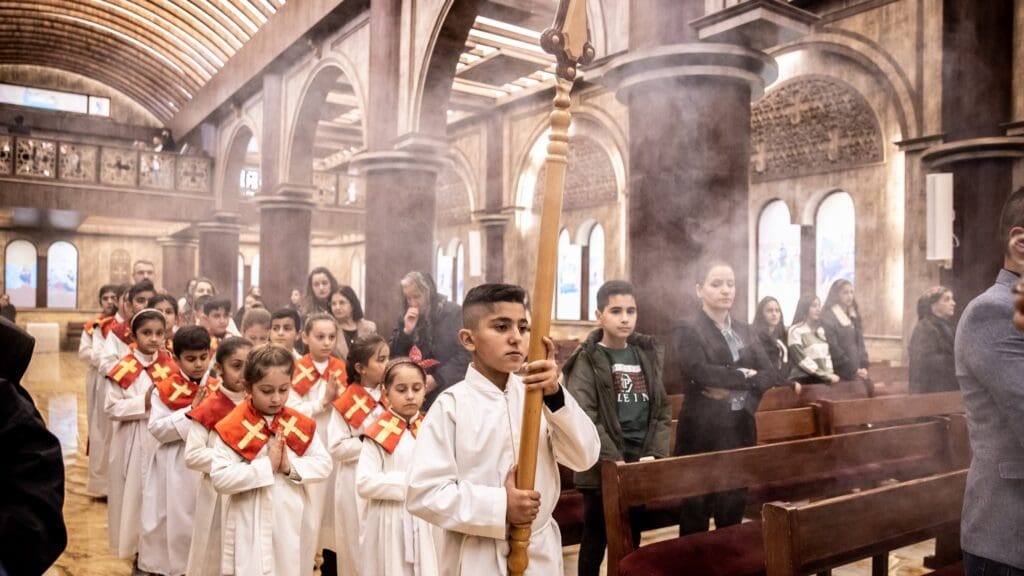
Although it’s an issue that is not talked about, Ms Taimoorazy underlined that Christian men are deeply hurt by the fact that they’re unable to protect their families from all the sufferings they have to endure. She explained that she experienced it multiple times when she was distributing food in Iraq that men bowed their heads and didn’t look at her as they accepted the food because they felt that they had been stripped of their dignity. Men often fall into depression, become excessive drinkers or start gambling, which impact their wives as well who, on top of all the sufferings they have to endure, they also have to watch their families falling apart. The Iraqi Christian Relief Council therefore focuses on helping rebuild infrastructure for Christians so men can have jobs again and support their families.
To conclude, Ms Taimoorazy explained why the future of Assyrian Iraqi Christians is worrisome. She underscored that the situation could improve only if their religious leaders would start educating Muslim communities and if a steadfast partnership with different Islamic organisations would come to life. However, she said, she was not very optimistic about the future. If there is no security, there are no job opportunities, a proper health care system and equal educational opportunities are lacking, more Iraqi Christians will flee to Western countries where there is a significant risk of losing their Assyrian heritage, language and traditions.
As we reported in a previous Hungarian Conservative article, Ms Taimoorazy is also an example of how we should be helping persecuted minorities, even if they are not of our faith. Apart from her work aiding Christians, she has spent a lot of time building relationships between Christians and the Jewish communities in the Middle East, and she leads the efforts of Assyrians in America to fight against anti-Semitism in various communities. Currently, she is a member of the Simon Wiesenthal Centre’s Midwest Region and of the advisory council of The Witness Institute, which strives to continue the work and legacy of Holocaust survivor and Noble Prize-winning professor Elie Wiesel. Ms Taimoorazy was a guest of the ‘Reflections from Budapest’ podcast in 2022 as well, where she explained that the fight against anti-Semitism was natural for her because, unlike the majority of Iranians—who are forced to hate the United States and especially Jews—she had been taught by her father from a very young age to love the Jewish nation and America. Her other reason for supporting Jews is that they and Assyrians share a kind of common destiny: historically, they speak very similar languages, since their root language is Aramaic, and, although in different ways, both have suffered similarly throughout history, and both want to return to their homeland. She added that their common destiny also manifests itself in a symbolic way: whenever she sees a swastika on the wall of a Jewish store, home, or synagogue, she remembers the Arabic letter intended to label Christians in Mosul in 2014 and set them apart from the rest of Iraqi society.
You can listen to the ‘Reflections from Budapest’ podcast’s 2023 episodes here, and to the 2022 episodes here.
In September 2022, Juliana Taimoorazy was the keynote speaker at Danube Institute’s ‘Christians, Violence and the Middle East’ conference. You can watch her full speech here.

